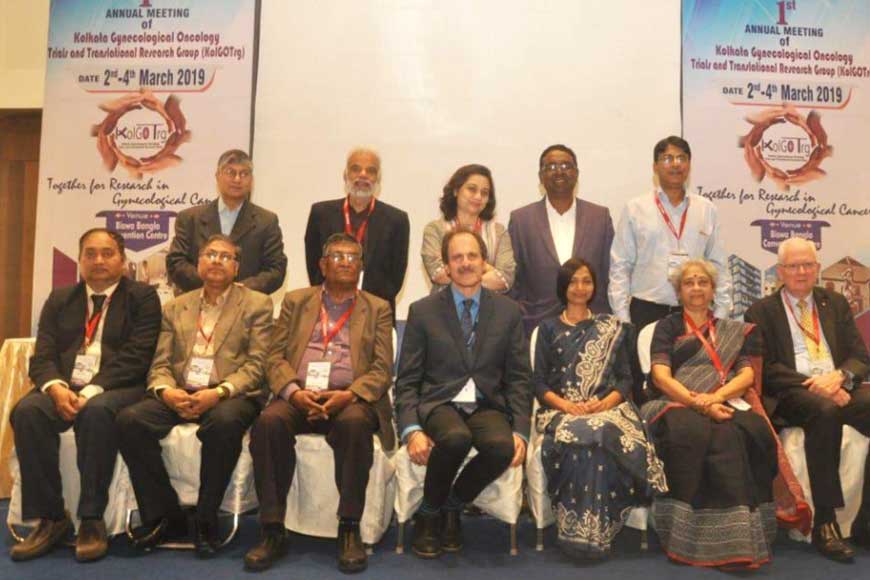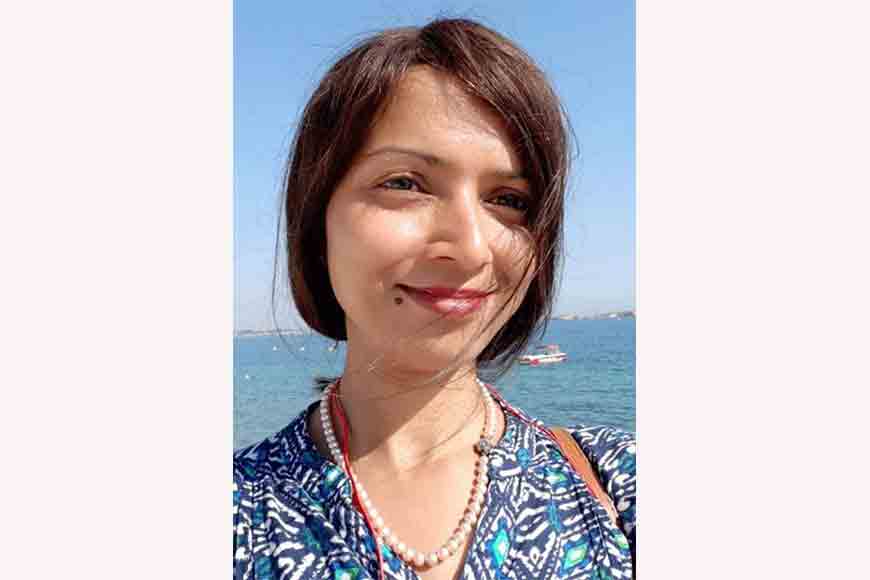Dr Asima Mukhopadhyay, famous onco-researcher, helps to set up cancer units in rural areas

Recently researchers involved in cancer research have found an alarming trend in India -- the average age of Indian women being diagnosed with cancer is growing younger by the day compared to developed countries. Not many are familiar with UK-born Indian clinical-scientist, Dr Asima Mukhopadhyay. She is one of the leading voices in women’s cancer research in the country. According to her, the key areas where we need to move ahead are public awareness through media and community-based programmes. School and college health education would be a major step in ensuring that women with symptoms get to see a cancer specialist in regional cancer centres in the first place rather than reaching thereafter a significant financial drain and loss in valuable time or inadequate treatment. Secondly, she insists we need more trained specialists and dedicated organ-specific cancer teams capable of addressing our specific needs.
Dr Mukhopadhyay joined the Newcastle University group of researchers in the UK in 2008 as a clinician-researcher for her PhD. That group and various other groups were trying to establish that cancers harbouring a genetic defect in the BRCA genes are very sensitive to a new class of anti-cancer drug called PARP inhibitors.
An alumni of Calcutta Medical College and Hospital, Asima lost her father at a relatively young age in 1998 due to cancer when she was still a medical student. As a cancer survivor family and a young budding doctor, she had the first-hand experience of the emotional, social and economic turmoil and helplessness that one has to undergo to fight this disease and the need for better treatment options and research towards this. She went to Newcastle University for higher studies but by then she had decided on a career in cancer care and research.
 Dr Asima Mukhopadhyay
Dr Asima Mukhopadhyay
After her return to India in 2015 from UK, she joined Tata Medical Center, Kolkata as an onco-surgeon. While working at the center, she noticed that a majority of cancer patients are not aware of the need to participate in studies or clinical trials which automatically improves the quality of care. In countries like the UK, major cancer research organisations are heavily supported through public funding and donations. She felt the need for a similar support mechanism including media support and goodwill for promoting better patient care.
In 2015, she became the driving force behind setting up of Project Ovarian Transnational Group of Studies in Kolkata and initiated the Kolkata Gynecological Oncology Trials and Transnational Research Group. This was the first-ever research group from India to become a member of the Gynecological Cancer Intergroup.
Dr Mukhopadhyay believes many primary and secondary health centres are not much developed and patients are often referred to specialized cancer hospitals with partial or incomplete treatment. So, the need of the hour, she feels, is to train the trainer.
Dr Mukhopadhyay joined the Newcastle University group of researchers in the UK in 2008 as a clinician-researcher for her PhD. That group and various other groups were trying to establish that cancers harbouring a genetic defect in the BRCA genes are very sensitive to a new class of anti-cancer drug called PARP inhibitors. In 2010, she showed that approximately 50% epithelial ovarian cancer patients harbour a defect called BRCAness or homologous recombination deficiency (HRD), therefore providing the scope for extending the use for PARP inhibitors to a lot more women compared to only 10-20% of women who have inherited detects in the BRCA gene.
Also read : Dr Senjuti Saha, first Bengali microbiologist to be appointed in WHO board
In 2011, this was published as the first-ever report showing the importance of functional BRCAness. She then developed a functional biomarker assay (used to understand the mechanism of action of a drug) using ascitic fluid from ovarian cancer patients at the Northern Gynaecological Oncology Centre in Gateshead. After 10 years of her original publication, there is a renewed interest in adopting the functional HRD assay as a better biomarker for selecting patients suitable for PARP inhibitor therapy. She was officially acknowledged as the co-developer of the PARP inhibitor Rucaparib (an anti-cancer drug). Not one to sit on her laurels, Mukhopadhyay donated her royalty money to build research capacity for cancer in India.
During the course of her career as an oncologist, Dr Mukhopadhyay believes many primary and secondary health centres are not much developed and patients are often referred to specialized cancer hospitals with partial or incomplete treatment. So, the need of the hour, she feels, is to train the trainer. Healthcare workers should be trained regarding various cancers, their symptoms, risk factors, hereditary factors and their preventive and treatment opportunities, so that they are able to identify the population at risk of cancers and create health education camps for enlightening the population.
Dr Mukhopadhyay suggests school health awareness campaigns can be created so that children of ages 12 years and above are educated regarding breast self-examination, menstrual hygiene, personal hygiene, obesity and hereditary cancer history so that they are aware of their physical and hereditary risks and act accordingly to prevent cancers in future. These children are the future of the society and if the knowledge of health awareness can be incorporated in them, the cancer risk in women will sufficiently decrease in future.










